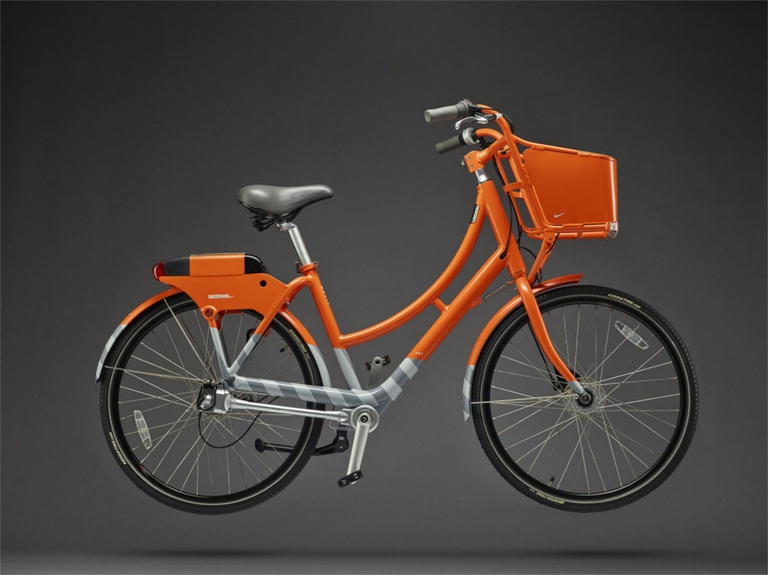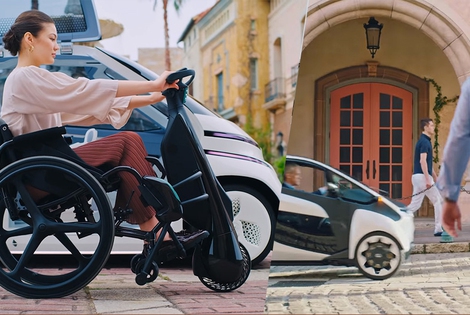
Milan has announced one of Europe’s most ambitious mobility schemes, known as Strade Aperte (open roads). Its goal is to reduce cars in phase 2 of the lockdown by increasing bike lanes and pedestrian areas.
The sportswear brand paid 10 million dollars for this new bike share programme. With Nike’s sponsorship Portland’s affordable system of bikes will grow from 600 to 1,000.
Portland will have a branded bike system. Its official name is Biketown but it’s also called “Nike-sharing”: the sportswear brand based in Beaverton, few kilometres away from the capital Oregon, allocated 10 million dollars to support it.
This is a way to promote the brand as well as physical activity and mostly cycling. The sum allocated by Nike added to the money allocated by the federal government and the Oregon Department of Transportation and with Nike’s sponsorship the system grew from six hundred to one thousand bicycles.
Portland has long been a bike-friendly metropolis so much so it ranked third in the 2015 ranking of top 50 bike-friendly US cities. According to some surveys, the bike share programme increased the citizens’ will to mount on their bikes. When they were asked “how often do you ride a bike?” 39% of the people answered “once a week or more”, a figure that grew to 76% after that the interviewed people used the bike sharing system. When asked “what do you like the most about bike sharing” 54% of the people answered “the value for money”, then physical activity and fun.
Here are the prices: 10-15 dollars a month for an annual subscription or 2.50 dollars every thirty minutes, making them one of the cheapest programme in North America. Subscribers will have available 90 minutes a day but a new possibility of introducing a price per minute.
The bike sharing should implement the city’s public transportation system of buses and trains, aiming to develop one of the most affordable, flexible and sustainable systems in the world. The concept of smart bike, a bicycle that doesn’t require electronic racks and is unlocked using a PIN code, has been developed.
The service will be used with a smartphone, a computer or a subscribers’ card. Besides the numerous bike stations all around the city, there will be more than 3,000 public racks available by paying an extra charge. This system allows to balance the number of bikes in all the areas of the city also thanks to a GPS system functioning in real-time.
This bike sharing programme conceived in collaboration with Socialbicycles plays also a social role thanks to the equity plan aimed to offer a bargain price and expand the area where it is used to low-income districts. Biketown will be launched in July 2016.
Siamo anche su WhatsApp. Segui il canale ufficiale LifeGate per restare aggiornata, aggiornato sulle ultime notizie e sulle nostre attività.
![]()
Quest'opera è distribuita con Licenza Creative Commons Attribuzione - Non commerciale - Non opere derivate 4.0 Internazionale.
Milan has announced one of Europe’s most ambitious mobility schemes, known as Strade Aperte (open roads). Its goal is to reduce cars in phase 2 of the lockdown by increasing bike lanes and pedestrian areas.
Formula 1, the world’s most important auto racing championship, has decided to turn the page and aim for carbon neutrality with the support of its teams, drivers and the whole racing circus.
Toyota and LifeGate began telling the story of hybrid mobility back in 2006, now, on the road to the Tokyo 2020 Olympics, they’re still treading the path of sustainable mobility. Here are the main steps of the journey.
Germany’s first solar bicycle lane could be the prototype for the roads of the future. The photovoltaic tiles melt snow and ice, and are capable of absorbing noise.
The Vespa is back in an electric version. Production has just started and the first models can be reserved online starting from October.
The city of Utrecht, in the Netherlands, is home to a bridge for cycling and walking that stretches over roof garden of a Montessori school. This project enhances practicality and will allow families to bring children to school by bike, passing through green areas. Despite their functionality, bridges are often seen as an infrastructure that is
The Lego hair bike helmet is the latest Internet craze. For now it’s just a prototype but production on a large scale will probably start soon.
Just as fires often give way to new growth, after the Dieselgate scandal, which saw Volkswagen cheating on US emission rules, the German car manufacturer radically changed course, beginning to focus on sustainable mobility. The German car company aims to propose thirty zero-emission models and produce at least one million battery electric vehicles by 2025. An ambitious mission
Sustainable, two-wheel mobility is triumphing in Copenhagen. After years of investments, policies, and infrastructural changes, bikes now outnumber cars in the city centre. The website Copenhagenize has released data linked to the number of vehicles entering the city centre, which are monitored by the city’s administration on a daily basis. Last year, 265,700 bikes have entered








